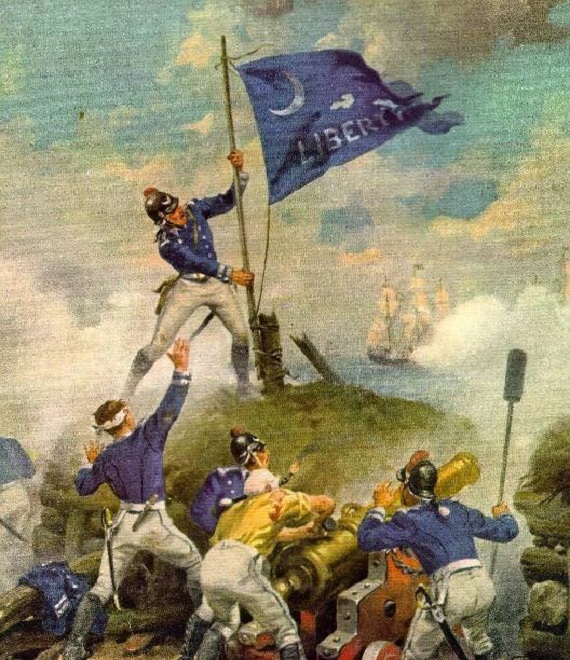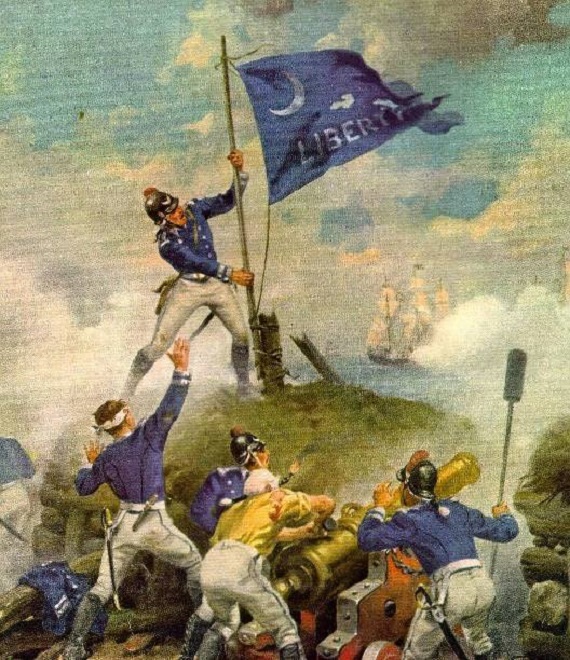A review of Nullification: Reclaiming the Consent of the Governed by Clyde Wilson, Shotwell Press, 2016.
As a young conservative, I came across ideas like nullification and states’ rights, during my studies. But they were always passed over, as if they didn’t mean anything anymore. When I read Robert Bork’s excellent book on Originalism, I never saw his unquestioned and unstated premise: that the it is the job of federal judges to decide upon the Constitution. I was never quite so aware of how much we have forgotten about America’s constitutional tradition, as I was when reading Dr. Clyde Wilson’s latest work.
Dr. Wilson’s work Nullification is 10 chapters in length. Most are brief, filled with prose that hits you like a lightweight boxer. No sooner is the reader struck once by a line than another one. Time after time, he takes cherished notions and leaves them in ruins. He fills pages with historical retelling and terse applications of the truth to the present.
Nullification is a brief and useful corrective to some beliefs of mainstream conservatism. Conservatives have largely accepted the supremacy of the Federal judiciary and its two claims. The first, that Federal enactments have power over the enactments of the States. And the second, that only the Federal judiciary, in final analysis the Supreme Court, has the power to declare what is and is not constitutional.
In “The Real Constitution,” Wilson takes quick aim at a central conceit shared by Left and Right today. Our conceit that the Constitution belongs to the lawyers (and judges), and only they get to say what it means for us today. Wilson debunks this when he says, “The constitution’s primary function today is to provide lucrative pickings for lawyer and pseudo-respectable cover for power seekers.” He remarks upon how the Constitution, which was meant to be a limit upon the powers of the federal government, is become, in the hands of lawyers and judges, “an unappealable instrument of power.” We are trenchantly reminded that, “The proper meaning of the Constitution is not a legal question but a historical one. Citizens do not need lawyers and judges to tell them what THEIR Constitution means.” Wilson seems to say that the Constitution is the possession of the people, not the domain of the elite.
He reminds us that the 10th amendment is the key to the entire Constitution. Where today we accept ideas of ‘implied powers,’ if we took the 10th Amendment seriously, we would not have the situation we do. Staunch adherence to the 10thAmendment render most federal action since at least 1933 impossible.. The recent Supreme Court ‘decisions’ making homosexual marriage and Federally mandated and run health care, would have been laughed out of existence.
We now believe that courts decide what the Constitution means, and therefore what may or may not be done. But Wilsons shows this not to be the case. Instead, he argues that the abandonment of nullification and the right of the States to interpret the Constitution is part of the reason for which our present government is become a tumor on the body politic. Once supremacy had been established by force of arms, in 1865, and later by federal purse strings, starting in the 1930s, it has been impossible to prevent the Federal government from interpreting the Constitution to mean whatever it wants it to mean.
The longest essay in this book is “The States Are What We Have.” Here Wilson aims to restore the idea that our Republic cannot subsist by the power of violence. If the States are not free to depart from this Union of ours, then they are reduced to a state of absolute tyranny. And under absolute tyranny there can be no true freedom, only what the tyrant will permit. The Founders meant to give us a, “happy Union of mutual consent and support.” It never meant a government of such power it can dictate the shape of our houses and the content of our schoolbooks. Never mind the egregiousness of our foreign policy.
He notes that, “The right to self-government rests on the right to withdraw consent from an oppressive government.” He contrasts empire and republic. Our Republic was founded to protect the freedoms of the men and women who dwell in it. To allow us to live freely, in our own place, with those we call friends about us. To bend our knees to whatever deity we choose, or do not choose. To live honest, decent lives of peace, pursuing each our private ends. This was what the Constitution was meant to protect. But, having abandoned the Constitution, we have replaced our Republic with empire. Empire, where the rulers look down upon the ruled, who cling to their religion and their land. Empire, where we are not free under God, but where we are permitted to do such things as bureaucrats and politicians think we should be doing.
He hews strongly to the idea that the Constitution is the possession of the people of the States, not the fig-leaf by which to legitimize federal corruption. Without the States as equal interpreters of the Constitution, we have no appeal past 9 lawyers in Washington. Whatever they say is as unalterable as the laws of the Medes and the Persians. Wilson’s work helps uncovering the now-forgotten principles of 1798. He labors to recall that the United States are, not the United States is, of a republican form of government.
Wilson also reminds us that the States are wielders of power. And it is that power alone which can hedge in the federal Leviathan. Citizens groups alone have proved insufficient to tame the beast. Only the States have the power and the constitutional backing to do so.
Nullification is chiefly concerned with criticizing present errors with old truths. But Wilson does not take the step of tracing out the practical application of these ideas. They would certainly lead to a magnificent restoration of freedom. As well as to an upending of our accustomed means of doing politics. All of which is to the good.
Overall, Wilson’s work is a refreshing and brief book. As a book of essays, it succeeds in dipping into each portion of what he has to say, while keeping everything within a stream of argument. Whether a book review, an historical essay or a constitutional exploration, Wilson’s work is much needed.







